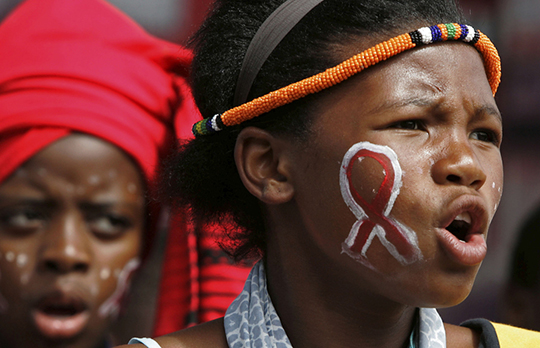36 Years Later: The Opportunity To End AIDS As We Know It

Cross-posted from DipNote: U.S. Department of State Official Blog
Thirty-six years ago today, if someone had told me that we would be on threshold of controlling the HIV/AIDS pandemic without a vaccine or a cure, I would not have believed it. But today we can realize that potential. And with the critical and essential progress we have made on HIV cure research and vaccine development, we are closer to eliminating HIV than ever before – binding communities, scientists, and political leaders together to envision a different future.
On June 5, 1981, the U.S. Centers for Disease Control and Prevention reported the first cases of what would later become known as AIDS. Particularly for those of us who were young physicians at that time, nothing would ever be the same.
In the years that followed, we witnessed the devastation and despair wrought by the epidemic among individuals, families, and communities in the United States. We watched hundreds and then thousands of men and women – many of them in the prime of their lives – die of AIDS-related causes. While most of these individuals knew their own days were numbered, they bravely and selflessly marched in the streets and fought on behalf of their friends to secure a response to the epidemic. Over the ensuing decades, thanks to a combination of scientific advances, political leadership, and community activism, the epidemic began to recede in the United States.
Not long after, in the early 2000s, reports from the front lines of the epidemic in sub-Saharan Africa were dire. Entire families and communities were falling ill to HIV, with disastrous social and economic consequences. Gains in global health and development were being lost in the hardest-hit regions of Africa: Infant mortality doubled, child mortality tripled, and life expectancy dropped by 20 years or more.
Faced with a continent enduring a health crisis, the U.S. government took a bold and compassionate stand. Fourteen years ago last week, the U.S. Congress authorized the U.S. President’s Emergency Plan for AIDS Relief (PEPFAR), just four months after its announcement by President George W. Bush. This unprecedented effort and investment began to turn the epidemic’s tide in Africa.
Working alongside our many partners, PEPFAR has helped transform the global HIV/AIDS response. We support nearly 11.5 million people with life-saving antiretroviral treatment, a 50 percent increase since 2014. This is compared with the only 50,000 people who were on treatment in sub-Saharan Africa when PEPFAR began. With PEPFAR support, nearly 2 million babies have been born HIV-free to pregnant women living with HIV – almost twice as many as in 2013 – and their mothers have been kept healthy and alive to protect and nurture them. PEPFAR provides assistance to nearly 6.2 million orphans, vulnerable children, and their caregivers.
We continue to expand PEPFAR’s impact by using data to drive accountability, find efficiencies, increase transparency, and leverage partnerships, including with the private sector – efforts that make PEPFAR a model for development programs everywhere.
Originally conceived as a compassionate effort to deliver life-saving services to men, women, and children in need, PEPFAR is now also taking on the challenge of controlling the pandemic. Last year, we announced the first evidence of the epidemic becoming controlled in three high-HIV-burdened African countries. PEPFAR is now poised to help control the epidemic in up to 12 high-burdened African countries over the next four years and reduce the future costs required to sustain an effective HIV/AIDS response.
Thirty-six years later, we have come a long way since the darkest days of the pandemic, in both the United States and around the world. But our job is far from done. To honor the memory of the millions of lives that we lost to this disease, and to save those living with and affected by the virus today, PEPFAR is more committed than ever to finish what we started – and to help end AIDS as we know it.